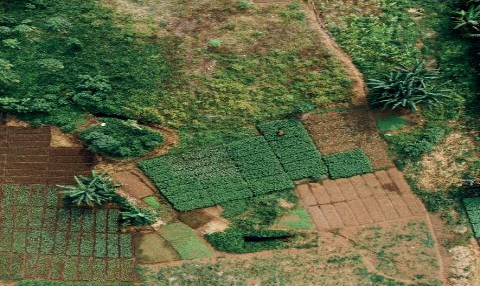A lecturer with the Department of Agronomy, University of Ilorin, Prof. Oluyemisi Fawole has advocated investing in climate-smart agriculture to promote soil health and fertility.
Fawole made the call in a paper presentation at the 242nd Inaugural Lecture of the university titled: “Intimate Strangers In Soil and Agricultural Sustainability.”
She explained that climate smart agriculture would help to sequester carbon and decrease greenhouse gas emission.
“The emission of greenhouse gases in the environment is increasing at an alarming rate globally.
“These occur in both natural and artificial ways. The artificial source of carbon dioxide emission occur due to human activities that include emissions from power plants, industries.
“Other ways include automobiles waste disposal, incineration and burning of fossils,” she said.
The don also stated that soil is the largest reservoir of carbon, holding about 2.5 times more carbon than the atmosphere holds.
Similarly, Fawole observed that in order to reduce hunger and food insecurity in Africa, there’s need for considerable increase in crop production.
“Although inorganic fertilizers boost food production, it’s at the cost of soil health, as persistent use would result in pollution and degradation of the soil,” she warned.
She therefore urged governments to regard soil and people as natural resources to be protected, maintained, and enhanced.
The lecturer added that afforestation should be encouraged in communities for a healthier soil ecosystem.
Furthermore, Fawole called for the provision of world class equipment and facilities for study of soil microorganisms in Nigerian laboratories.
“Organic farming practices should be encouraged through the use of eco-friendly soil amendments to enhance soil fertility for improved crop productivity.
“Soil health should be promoted while the use of eco-friendly pesticides for the protection of crop pests without damaging the soil should be encouraged,” she advised.
Besides, the expert called for establishment of stock culture collection centre and database for indigenous soil microorganisms in the faculty of agriculture of University of Ilorin.
Fawole added that the university could be generating income from production of organic fertilisers from composting of waste.


